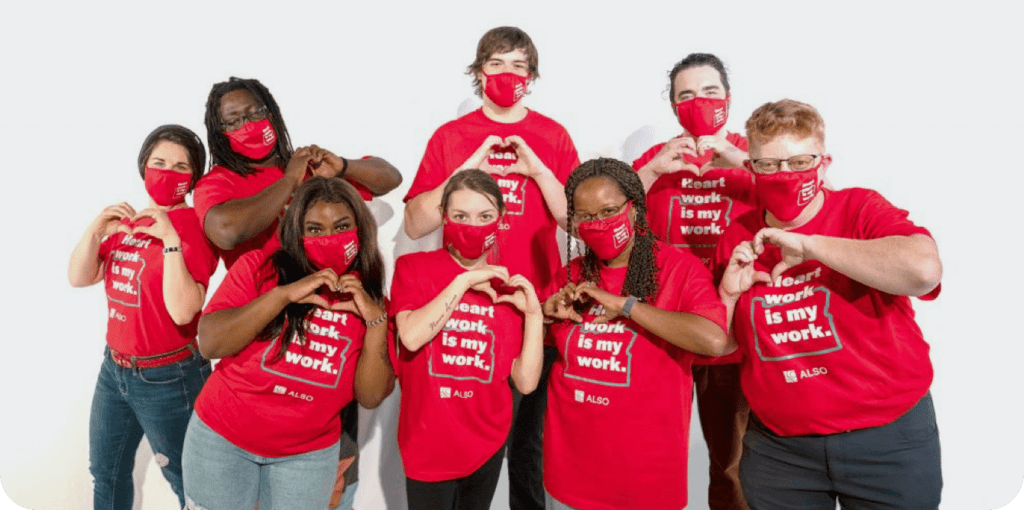Affordable housing for people with I/DD is in low supply. Learn what ALSO is doing to make a difference.
Affordable housing for people with I/DD is in low supply. Learn what ALSO is doing to make a difference.

The month of July is quite a momentous occasion for the disability community. On July 26th, 1990, lawmakers and disability activists came together to enact the Americans with Disabilities Act (ADA). It welcomed a new era in the disability rights movement. Since then, people with disabilities, along with a multitude of allies and advocates, have made great strides in disability justice and equitable access.
Did you know that the Americans with Disabilities Act is a Civil Rights Law?
That’s right! The ADA makes it unlawful to discriminate against people with disabilities. It affords protections in the sphere of fair employment practices, public spaces, public housing and assistance, and public transportation. It also led to the establishment of communications advancements, such as the teletypewriter (TTY) and other mobile devices. Such technology is critical for people with speech difficulties and hearing impairments to live, work, and function in today’s society.
The ADA applies to many types of disabilities, including people with intellectual and developmental disabilities. This includes and is not limited to the following:
A major aspect of the ADA is reasonable accommodation. Although it most often applies to employment, it can also relate to public housing, transportation, and other forms of public access. Some examples of reasonable accommodation are:

Any person with a disability, or their loved ones, allies, and advocates, has a personal connection to the injustices of systemic ableism. Activists and thought leaders in the sphere of disability justice describe this as a collection of policies, institutions, and societal values that lead to disadvantages based on mental and physical ability.
Sadly, systemic ableism creates numerous barriers in the minds and attitudes of non-disabled people. It causes major roadblocks to independent living, fair employment, and other forms of equitable access for our community members who have disabilities. Not surprisingly, social media have contributed to the problem of stereotyping and stigmatization.

Disability culture refers to a set of inherent differences, common views, and collective experiences held by those people living with disabilities. Rather than something to hide that invokes feelings of embarrassment and shame, it’s important to celebrate and show pride in unique experiences as valuable community members. To respect each person’s differences and contributions to work, family, and society as a whole is important to any human being.
The disability pride flag is one symbol of the unity and determination for equality that all individuals with disabilities share. It has a black background that represents the suffering and protest that people with all kinds of disabilities have endured. It also features lightning bolts and bright colors symbolizing the diverse parts of the disability community. The colors are typically different, depending on what type of disability a specific group might have. But they are all bright and strong!
There are so many ways to celebrate the contributions of people with disabilities worldwide. Here’s just a few:


Sign up for our newsletter to get our latest news, content, and job opportunities.
Help us ensure that everyone has the same opportunities in their home, workplace and community. Let’s make dreams!
